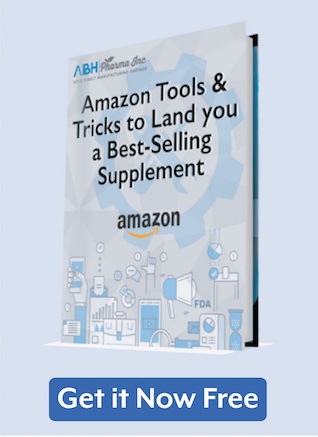Now, we know that magnesium stearate (Mg) is not easy to pronounce. But, it is an important compound to learn about and understand. Especially when starting up a supplement brand. Why?
Because the supplement industry is currently polarized on this compound. Before you can learn the cause of this debate, you must understand the basics of magnesium stearate. Here are some simple facts as well as the pro’s and con’s of this compound!
First, magnesium stearate is a rather simple compound. Despite the science fiction name, this is just a simple salt. Nutrition Review published an interview with Dr. Dana Myatt who discussed the compound. She states that this simple salt is made of two normal nutritional substances.

One is the mineral magnesium any other is a saturated fat stearic acid. Magnesium is a mineral naturally present in many foods. In some cases, Americans suffer from magnesium defines. On the other hand, stearic acid is found in eggs, coconut oil, walnuts, salmon, and chocolate, among many other foods. So why are people split on magnesium stearate?
How Is Magnesium Stearate Used?
As previously mentioned, magnesium stearate has been used as an inactive food ingredient. Basically, an inactive food ingredient does not contribute to or alter the flavor of the food. In the food industry, it is used as an emulsifier, binder, and thickener.
This compound helps stabilize processed foods, for example. Furthermore, it is even used as a lubricant. It is also now used in the production of pharmaceutical tablets, powders, and capsules.
The use of this compound in food and nutraceuticals is similar but somewhat different. For food, this helps prevent the caking of ingredients.
Now, this compound please a big role in manufacturing supplements. Simply put, this “flow agent” enhances the manufacturing process and benefits the consumer. It helps control the dosage amount of a capsule, for example.
Individual ingredients cannot stick to one another when this compound is present. All the while, it also prevents ingredients from sticking to the capsule itself. As a result, it speeds up the manufacturing process and makes it much more efficient all at once

The Pro’s & Con’s
The supplement Industry is divided on the topic of magnesium stearate. While there are plenty of benefits, some worry about potential side effects. Both sides offer plenty of information and sound thoughts. So here are the pro’s and con’s of this particular compound and its use in the supplement manufacturing process.
The Pro’s
Obviously, one big benefit deals directly with the creation of supplements. First, this “flow agent” up the manufacturing process. As a result, manufacturers make more products and reduce costs at the same time.
So there is a clear benefit for supplement manufactures when it comes to using this compound. However, the benefits go way beyond just the supplement creator.
The Mg compound benefits consumers and two distinct ways. The first comes in the form of a healthy dosage. As mentioned earlier, this compound prevents ingredients from sticking to the capsules and from sticking onto one another. Thus, manufacturers can create a homogeneous mix.
Furthermore, each capsule or tablet features the same amount of active ingredient. After all, daily supplements provide benefits over a period of time and not in one dosage. Finally, the lubricant properties allow an easy ingestion process for customers!
The Con’s
The main con that is vital for supplement company owners to know is that magnesium stearate is an unnatural ingredient. You can kiss goodbye all aspirations of using the words all natural on your label or packaging.
The professionals at ABH never deal with that issue as we use the most innovative alterative on the market, Nu-Flo®! Made from a rice concentrate, you won't need synthetics or other anti-caking agents.
Now, there are a number of potential Side effects commonly associated with magnesium stearate. For example, the hydrophobic nature of this compound leads many to believe that it can slow down the gastrointestinal tract dissolving of supplements and drugs. However, University of Maryland studies disproved this effect of the compound.
Magnesium Stearate: The Big Debate
So if there are positives and negatives when it comes to this compound, why all the fuss? The real debate all goes on internally amongst different supplement manufacturers. As a matter of fact, this compound is only up for debate because of one reason, competition.
If this compound enhances the manufacturing process then it gives one supplements manufacturer in edge over the other. Furthermore, there is dissatisfaction in how this compound is presented to consumers in regards to the natural ingredients.
Basically, the big debate over this compound deals with whether or not it is a natural ingredient. Supplement manufacturers may use magnesium stearate in their manufacturing process while claiming everything is “all natural”.

Due to the natural lubricant properties, they are not necessarily wrong. On the other hand, the opposition claims that this is not natural. After all, it is a compound made of two different elements.
As discussed earlier, the Mg compound enhances the overall process of production. Thus, it helps out manufacturers. On the other end, it plays a vital role in creating tablets, capsules, and even powder. Remember, without the anti-caking agent the powder will stick together. Imagine using protein powder and getting one solid clump of protein!
Here at ABH Pharma, we believe in informing our potential clients. That way, you know what is being used in your supplements. We believe and providing people with nutrition. So much so, we even handle nutritional labeling as well.
Alongside our team, work through every single step of the supplement creation. Whether you want in all natural supplement or not. ABH Pharma can provide you with the best customer service and full transparency.





